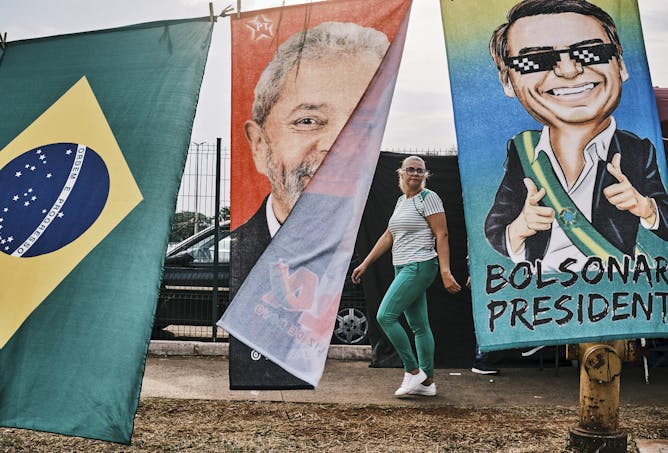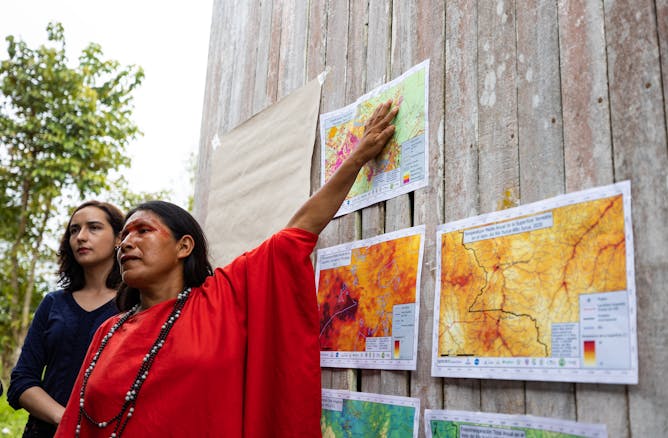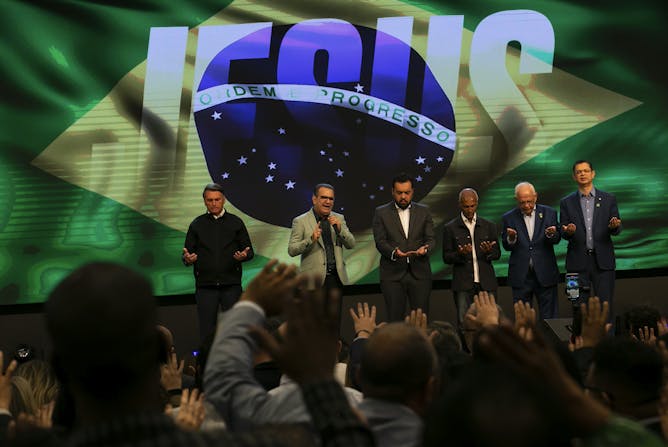|
Brazilians have a stark choice to make in their presidential election that takes place tomorrow. Luiz Inácio Lula da Silva, a leftist leader who led the country from 2003 to 2010, is the front-runner. Should he get his old job back, Lula would unseat Jair Bolsonaro, a conservative firebrand closely allied with former U.S. President Donald Trump. But in a move that may sound familiar to U.S. voters, Bolsonaro has hinted that he might reject the results unless he wins.
“Many Brazilians worry that by attacking the results before polling day, Bolsonaro is preparing the way to try to stay in power illegally,” observe Jeffrey W. Rubin and Rafael R. Ioris, historians at Boston University and the University of Denver. Democracy is on the ballot, as well as the presidency, they explain.
The alternative, a slide into authoritarianism, would have seemed unthinkable when I was a foreign correspondent based in Brazil in the early 1990s, just a few years after the end of a long military dictatorship.
Amy Erica Smith, an Iowa State political scientist, offers more context about this pivotal race, pointing out that Bolsonaro’s support from evangelical Christians has waned. One reason, she explains, is a tendency of Brazilian evangelicals to support environmental protection.
And under Bolsonaro, the pace of Amazonian deforestation has accelerated – making this election pivotal for the environment and the Indigenous people who reside in the Amazon, writes David S. Salisbury, a University of Richmond geographer.
|

Winds of change in Brazil, or an ill breeze?
Gustavo Minas/Getty Images
Jeffrey W. Rubin, Boston University; Rafael R. Ioris, University of Denver
Former President Luiz Inácio Lula da Silva is ahead in the polls. But will his authoritarian rival, incumbent President Jair Bolsonaro, accept the result if he loses?
|

Maria Elena Paredes, coordinator of the Community Vigilance Committee for the Ashéninka community of Sawawo Hito 40, points to satellite images showing deforestation.
Reynaldo Vela/USAID
David S. Salisbury, University of Richmond
Illegal roads have brought deforestation, fire and other environmental damage to the Amazon. Indigenous territory in many areas has blocked them.
|

Pastor Silas Malafaia, second from left, prays alongside President Jair Bolsonaro, far left, at the Assembly of God Victory in Christ Church in Rio de Janeiro.
AP Photo/Bruna Prado
Amy Erica Smith, Iowa State University
Trump and Bolsonaro use religion in similar ways, but there are key differences between the two countries’ evangelical communities – and politics.
|
|
|
-
Morgan Marietta, UMass Lowell
Affirmative action, discrimination against LGBTQ people and election laws are some of the hot-button issues that the Supreme Court will tackle this fall.
-
Pardis Mahdavi, The University of Montana
A scholar of Iranian politics explains how Iranians have organized resistance movements for the past several decades while risking arrest and public flogging.
-
Jon Sweetman, Penn State
The US Supreme Court opens its 2022-2023 term with a case that could greatly reduce federal protection for wetlands. Here is what makes these ecosystems valuable.
|
|
The Conversation Quiz 🧠
|
-
Quizmaster, The Conversation
Here's the first question of this week's edition:
Which company recently transferred its ownership to a trust and a nonprofit rather than “going public” by selling its shares to investors?
- A. Snapchat
- B. Staples
- C. Bose
- D. Patagonia
Test your knowledge
|
|